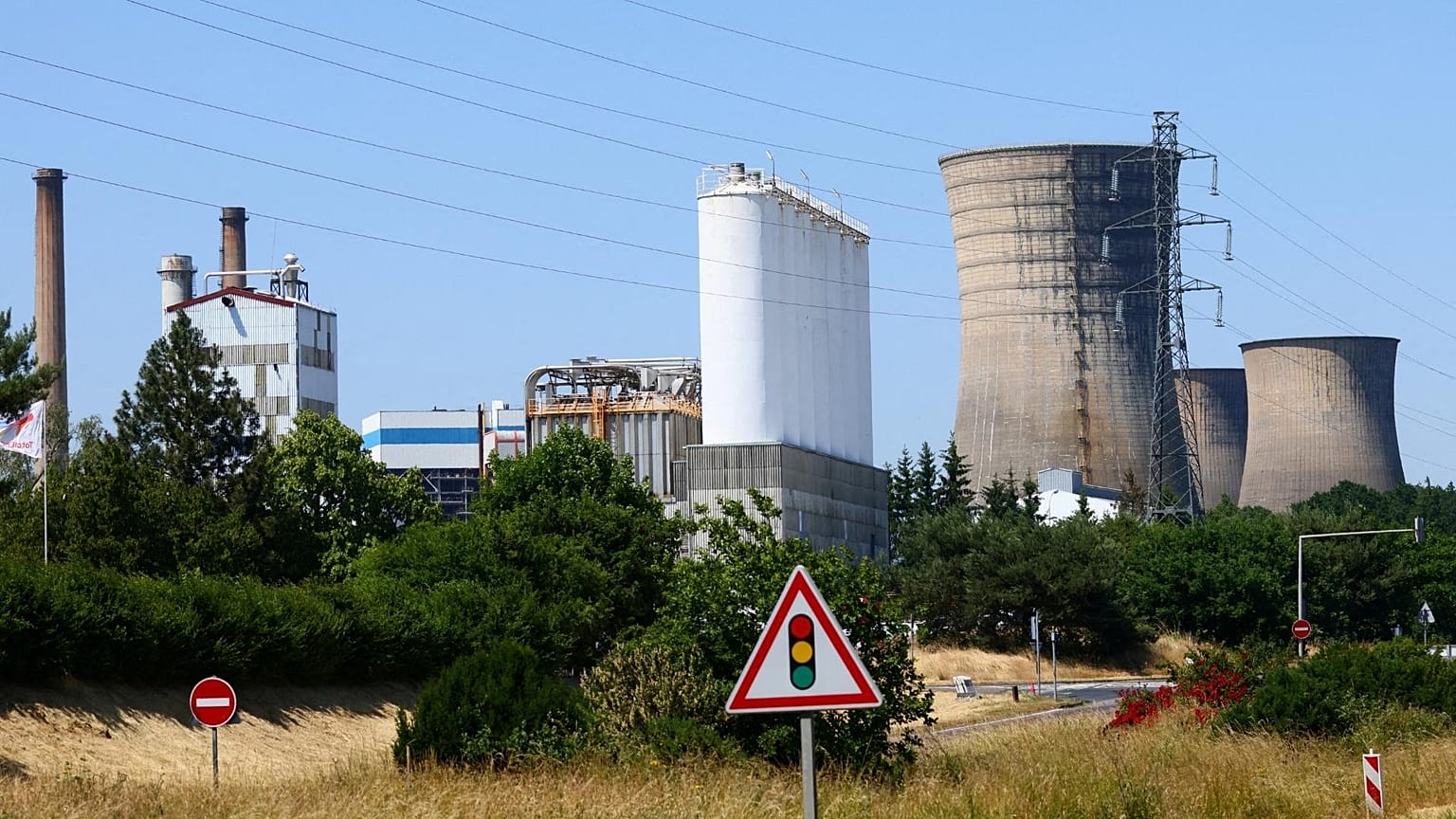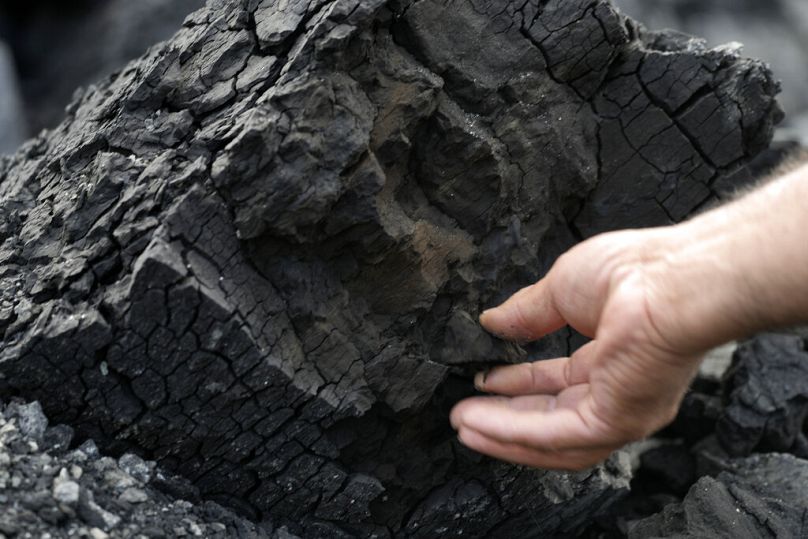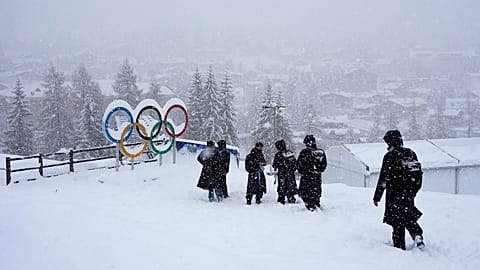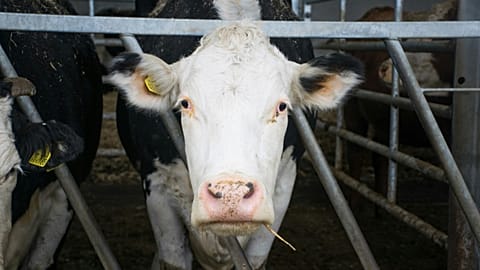The 27-member bloc has now agreed its negotiating position ahead of the UN climate conference in Dubai.
EU member states will push for a world-first deal to phase out the "unabated" global use of fossil fuels at this year's COP28 summit.
 ADVERTISEMENT
ADVERTISEMENT
 ADVERTISEMENT
ADVERTISEMENT
It sets up the 27-country bloc as one of the most ambitious negotiators at the annual United Nations climate talks, where nearly 200 countries negotiate efforts to fight global warming.
"We will be at the forefront of the negotiations to show the EU's strongest commitment to the green transition and encourage our partners to follow our lead," Spain's Climate Minister Teresa Ribera said.
"The EU is a driving force for change and we have to speak with a single voice in the world. We can simply not use difficulties as an excuse to turn back to a pre-Paris agreement situation."
A statement released after a meeting of EU environment ministers on Monday stressed that "the transition to a climate-neutral economy will require a global phase-out of unabated fossil fuels and a peak in their consumption in this decade."
Which EU countries backed a fossil fuel phase-out?
Around 10 of the EU's 27 member countries including Denmark, France, Germany, Ireland, the Netherlands and Slovenia wanted the bloc to demand a phase-out of all fossil fuels, EU diplomats told Reuters.
"If you listen to all the scientists, it is rather clear that we need to phase out all fossil fuels," said Dutch Climate Minister Rob Jetten, who urged the EU to be "the most ambitious bloc" on the issue at COP28.
A similar number of countries - including the Czech Republic, Hungary, Italy, Malta, Poland and Slovakia - were more cautious.
They endorsed a phase-out only of "unabated" fossil fuels - which would allow countries to keep burning coal, gas and oil if they use technology to "abate" or capture the resulting emissions.
There is currently no international definition of what exactly "unabated" means and critics have said that carbon capture and storage (CCS) technology is no more than greenwashing.
Ugandan climate activist Vanessa Nakate told the EU's new climate commissioner, Wopke Hoekstra at an online discussion before the climate ministers' meeting, that "given the speed and scale at which we need to reduce emissions, CCS is a fairytale solution."
The EU member state's agreement acknowledges that CCS technologies "exist at a limited scale and are primarily designed for reducing emissions in sectors where emission reduction is challenging" and should not be used to delay climate action.
This could include CO2-intensive industries such as chemicals and cement which have limited options to curb emissions.
Will the world agree to phase out fossil fuels at COP28?
Denmark's global climate minister Dan Jorgensen called the EU's position "extremely ambitious".
"I would have liked it to be even more ambitious, but okay, we are a union for almost 30 countries, and we need to agree," he told Reuters.
The next hurdle will be whether nations can reach a consensus on the issue at COP28 in December.
The EU split reflects simmering global tensions. Countries which opposed a full phase-out include poorer nations who fear the impact of weaning their economies off fossil fuels.
Fossil fuel producers and consumers - some of whom, like Saudi Arabia, have blocked attempts to agree a phase-out in recent meetings including this year's G20 summit - are expected to offer similar resistance at the COP28 summit.
What else is the EU pushing for at COP28?
The EU will also call for the phasing out of "inefficient" fossil fuel subsidies which "do not address energy poverty or just transition" as soon as possible.
The European Council has also stated that there can be no new coal-fuelled power plants if the world is to avert severe climate change. Instead, it is calling for global action to triple installed renewable energy capacity and double the rate of improvement in energy efficiency by 2030.
"Cooperation with developing nations is essential to address the challenges and secure the benefits of the transition," it stresses.


















